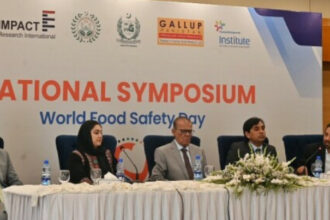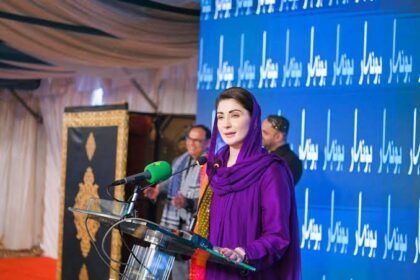A good message was delivered to the world by Ambassador Munir Akram, Pakistan’s top diplomat at the UN while speaking at the UN Security Council which held a debate on July 19, 2024. He stressed cooperation among the UN, regional and sub-regional organizations for establishing world peace. Better trade relations, cooperation and friendship are key requisites for establishing lasting peace in any part of the world. Different states need to adopt a balanced foreign policy if they want to live in peace. Currently, the world is facing common challenges like bad economic conditions, extremism and terrorism, obstacles to trade and industry and political instabilities. During his speech at the UN in New York, Ambassador Munir Akram also warned against striving for regional hegemony particularly by any large state. On the occasion, he blamed India for inactiveness of SAARC due to the latter’s lackluster attitude in reinvigorating this forum. Eight South Asian states, including Afghanistan, Bangladesh, Bhutan, India, Maldives, Nepal, Pakistan and Sri Lanka, are the members of South Asian Association for Regional Cooperation (SAARC), which was established in 1985 with a basic purpose of bringing prosperity in the region. The last SAARC summit with physical presence of relevant heads of states was held in Nepal in 2014 while India refused to attend the 16th SAARC summit to be hosted by Pakistan. Since then, the summit is being organized virtually adding to its ineffectiveness in bringing any positive development. The creation of SAARC was aimed at copying the footprint of the European Union; however, it has still been grappling with the main challenge of defusing tensions and rivalry between two main stakeholders i.e., Pakistan and India. By joining SAARC and sticking to its manifesto, member states could have achieved certain objectives of bringing a positive change in the lives of their people.
To some extent, SAARC proved an ideal platform and made some progress in bringing together regional states, but unnecessary conflicts and non-cooperative attitude on part of certain member countries, including two of the bigger states, SAARC has turned into a routine conference without any tangible results and thus becoming non-productive in a sense that it has failed to bring all member states on one table to deliberate and resolve common problems faced by the masses. It is nothing but a diversion from the actual aim that was conceived for its inception. For finding a common ground to give peace a chance, the organization of SAARC summit on a regular basis is necessary, especially for Pakistan and India. It would help them get engaged in a positive manner. Moreover, it is a two way process, both the states have to cooperate in the larger regional interest. In this scenario, other SAARC states also need to play their role in convincing main neighbors to end their decade-old competition. All member states need to work together for achieving real benefits in the form of development, regional peace and friendly relations. A big opportunity is missing due to ineffectiveness of the SAARC that is trade ties among these member states. By using this platform, they can get engaged in bigger financial deals regarding their respective business sectors, which provide a much needed boost to their industries. Somehow, Pakistan has ‘failed’ to tap full potential of trade ties with these neighboring states. For the last many years, Islamabad has not been on good terms with New Delhi due to India’s hostility, as well as bitterness in relations with Bangladesh and Afghanistan. There is a trust deficit mainly due to superiority complex of India and its aggressive leadership. However, Pakistan’s relations with Sri Lanka have positive indications because of the friendly attitude and trust between the two states.
On the other hand, the policy of give-and-take is in practice during relations with states like Bhutan, Nepal and Maldives. All these states need to understand that their common problems are none other than poverty, unemployment, illiteracy, gender discrimination and many others, which can only be sorted out through dialogue and cooperation. However, an atmosphere of mistrust exists that hinders any positive dialogue process or finalization of a common agenda. A non-cooperative attitude has turned SAARC into a talking-shop only. Conclusively, responsibility of making SAARC or any other platform successful lies on Pakistan and India. The two neighborly states have to forget the past and lay a new foundation of trust, cooperation and trade relations. So far, no hope is visible that they will come on good terms due to usual set of accusations from both the sides. Islamabad already shared with national and foreign media that India is creating unrest in Pakistan. This unnecessary hostility hinders Islamabad and New Delhi to enjoy true benefits of peace, and peaceful coexistence. If both the states give peace a chance, it can provide enormous benefits to the masses on both sides of the borders. By establishing trade links, they can flourish their respective economies. Time has come that the governments of Pakistan and India use SAARC or any other platform for starting a new beginning. The political leadership needs to resolve all issues in an amicable way. They need to sit together find solution to each grievance one by one. There are enormous opportunities of establishing trade links and they should not deprive their masses of these peace dividends. The ‘cold war’ insanity must be ended now and both the states need to strive for establishing friendly relations in the larger regional interest.






